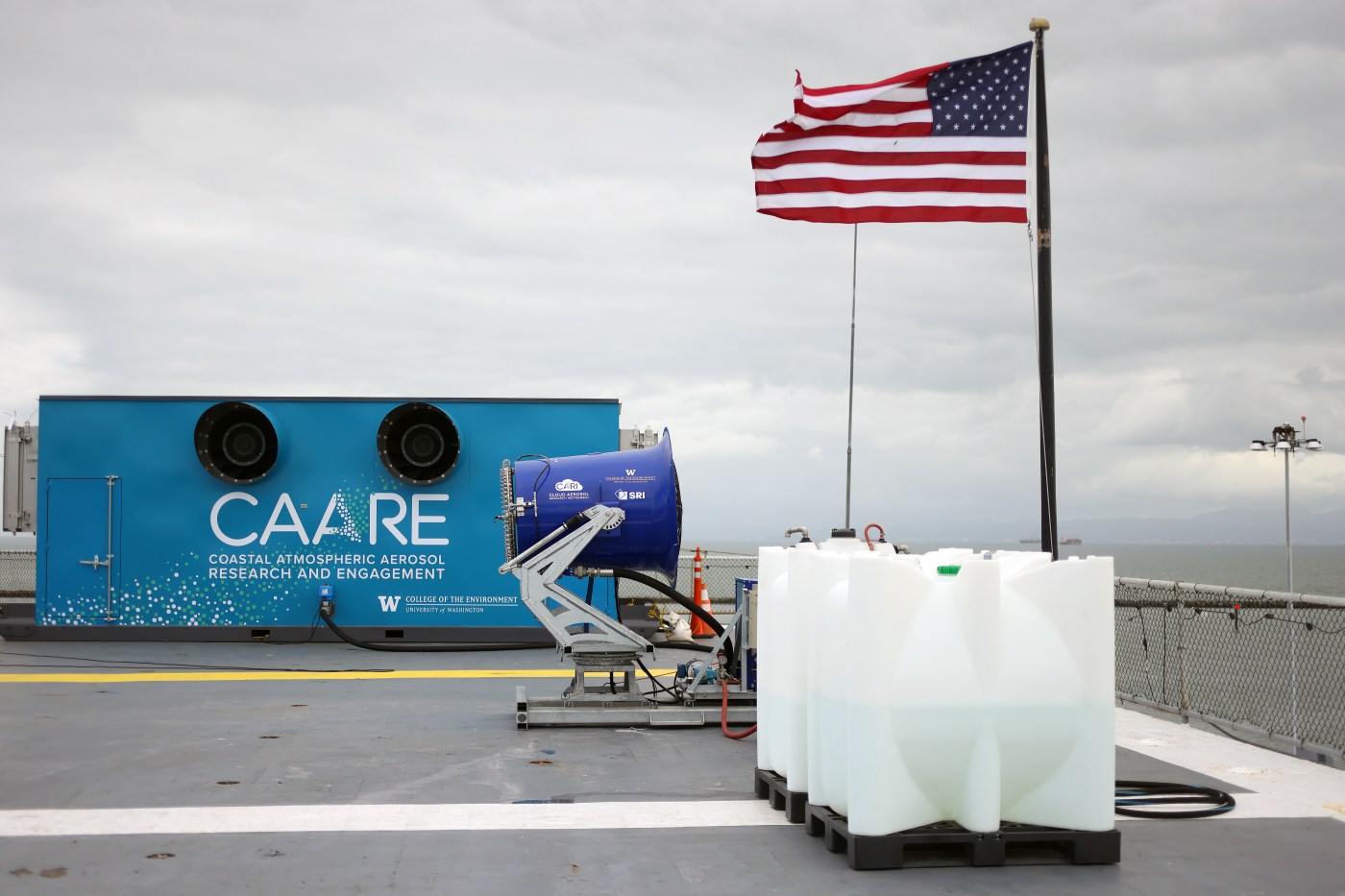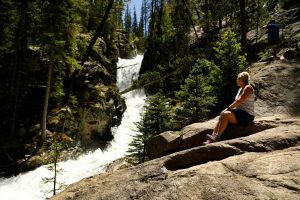An experiment conducted on the USS Hornet in Alameda to study if brightening clouds could be a way to combat climate change does not pose a measurable health or safety risk to nearby residents or wildlife, an independent study commissioned by the city found.
The results of the study were released just weeks after Alameda officials asked the researchers from the University of Washington to halt the experiment on the grounds that it violated the Hornet’s lease with the city, citing concerns over safety. The Alameda city council will vote on whether to allow the experiment to continue at a meeting on June 4.
The city manager’s recommendation to the city council suggested that officials allow the experiment to resume with the addition of certain parameters.
The Marine Cloud Brightening Project began tests on the upper deck of the USS Hornet in April, shooting plumes of microscopic drops of salt water into the atmosphere to measure whether they make clouds more reflective, which would send more of the Sun’s heat back into space .
The experiment was first tested in the lab before moving to the USS Hornet, a former World War II-era aircraft carrier perpetually docked in Alameda as a museum. The Hornet – ideally located on the often-cloudy San Francisco Bay – will let researchers see whether the theory works in real atmospheric conditions.
The city’s study, conducted by environmental consulting company Terraphase Engineering, found that the microscopic aerosols emitted by the experiment do not generate a “measurable health risk to the surrounding community,” according to the recommendation. The saltwater sprayed by the experiment is similar to seawater, which is one of the largest sources of naturally occurring aerosols in the environment.
Terraphase outlined three conditions that the city could require to better define the scope of the experiment, according to the recommendation, including the use of air matter monitors in the localized area of the study and the creation of an air monitoring plan to be approved by the city.
“We aim to support any arrangements the city deems relevant, and look forward to working with them on these considerations at next week’s meeting,” Dr. Sarah Doherty, program director of the Marine Cloud Brightening Project, wrote to Bay Area News Group.
The city commissioned a second evaluation from a “biological consultant” to investigate effects of the experiment on California least terns, an endangered bird species. That study found that the work poses no risk to them or any other local sensitive bird species, according to the recommendation.
“Alameda has a high standard of care for its people and the local environment, and we appreciate the findings of their experts that the CAARE studies do not pose any hazards,” Doherty wrote. “This supports our own evaluation that this is a safe, publicly accessible way to further research on aerosols in the atmosphere, to support environmental goals and to promote education and equity in science.”
The Marine Cloud Brightening Project commissioned its own expert safety study before beginning tests on the Hornet, finding “that the study does not exceed established regulatory or permitting thresholds,” according to a May 13 statement released by Doherty and Dr. Rob Wood, principal investigator. The plumes of salt water “operate well below established thresholds for environmental or human health impact for emissions.”
If allowed to continue, the researchers plan to conduct the spraying tests three times a morning, four days per week, according to the recommendation. The tests would be conducted before the museum opens to the public, and any demonstrations of the equipment as part of the corresponding educational exhibit would use plain water in place of salt water.
Related Articles
Pregnant? Researchers want you to know something about fluoride
Fears of a second slide loom over Papua New Guinea disaster scene
From the inner city to the Grand Teton, this climber inspires diversity in mountaineering
Hungry goats are latest phenom-nom-nom in Colorado wildfire prevention
Illegal trash dumping is a problem in Silicon Valley. Here’s how one South Bay town is trying to solve it.
If the Hornet museum is not allowed to continue the educational sprays of the equipment, it would lose the estimated $100,000 in income it was estimated to receive as part of the partnership, according to the report.
The city council will discuss a new lease with the Hornet this summer to “ensure this situation does not occur again,” according to the recommendation.












